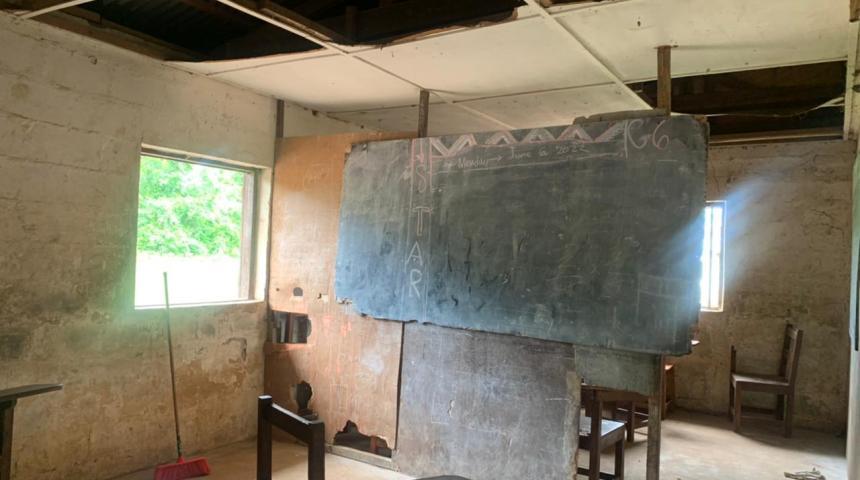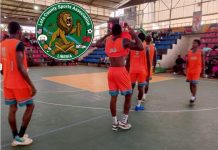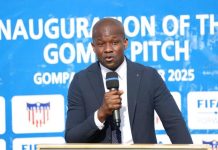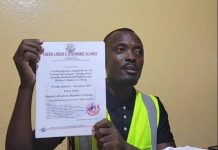Africa-Press – Liberia. The Ministry of Education has been told that Todee, an impoverished district in Montserrado County, is experiencing an alarming education crisis ranging from a high school dropout rate to poor academic results.
The situation, according to Albert Washington, Todee’s Acting District Education Officer (DEO), is getting worse as students are now able to only learn less than the lessons prescribed by the Ministry in its full curriculum. Washington added that students in Todee regularly go to school without seeing teachers — many of whom are volunteers with secondary activities. When busy, their classrooms may sit empty for half of each month — compelling many to drop out of school.
“The Ministry of Education’s failure to hire volunteer teachers and provide instructional materials to public schools are factors in the decline in student enrollment. Students are suffering due to the significant disruption in teaching activities and the lack of instructional materials,” said Washington. “The government will say okay, we want to employ teachers, we will then send their names and qualifications, but they will take only one or two.” Todee, a rural area in Montserrado County with more than 32,695 residents and 475 towns and villages, struggles with many issues including poverty, inequality, and access to quality education. Many survive on farming, coal burning, and fishing.
In Todee, many villages are not easily accessible by car and people have to walk for hours or sometimes days to access basic services such as health and education. With the hardship the locals are faced with, access to quality education is a major barrier to the young people of Todee. Students are forced to drop out of school and venture into other activities because of the lack of qualified teachers and a decent learning environment.
According to ‘Education and Fragility in Liberia’, a 69-page research paper published by UNESCO and the International Institute for Educational Planning (IIEP), Liberia’s educational system has been characterized by flaws and structural weaknesses, such as the need for effective administration, dedicated and well-paid teachers, proper supplies, maintenance, and development of an educational revival. This is attributed to the 14 years of civil war leading to the near destruction and disruption of the education system.
Thirty percent of public schools and 24 percent of community schools were destroyed, and 16 percent more were seriously damaged with desks, chairs, and basic supplies looted or destroyed, with all educational management and support systems disrupted when many of the teachers fled, creating a legacy of shortage of qualified and trained teachers.
According to UNICEF, Liberia has the world’s largest number of out-of-school children, with 56 percent of primary-school-age missing out on education. 15-20 percent of 6-14 year-old children are out of class and 54 percent of children complete primary school. Yet, most of the country’s young people still face significant challenges in getting a quality education, healthcare, and social services, or finding meaningful employment. Young people like, Odaphus Momo, 31, who has been a volunteer teacher for over three years at the Doris G. Holder Public school in Doris town, says he has no choice.
“Sometimes I have to walk 2-3 hours just to get in touch. It is hard, but what to do? We signed up so we have to sacrifice our time and energy to help our younger population,” he said.
The district, which is about 45 minutes’ drive from the nation’s capital Monrovia, lacks a university or college, while basic social services such as safe drinking water, decent health facilities, and high schools are still in short supply. In an emergency, people have to travel several kilometers to get to the police station or the count in Nyehn Town, the district headquarters.
The Acting DEO (Washington) noted that unlike the administration of former President Ellen Johnson Sirleaf, during which the ministry regularly provided chalks, books, and other teaching resources, the district has not gotten any educational resources for the past two years.
“You will see students moving from one high school to another because there is no teacher in the classroom to teach them so those who cannot stand it will drop out and find other things like commercial motorbike and farming to do,” Washington adds. According to him, teachers are using their own money to travel to and from school, which means they will ultimately be ineffective. James G. Wennie, Nyehn Public School Principal, explained that the lack of teachers is a serious barrier to learning in the district. “Some of our teachers are volunteers, most especially in our high schools, and usually come from Monrovia to come here to teach every day, but most of the time they will not come because of money. Sometimes they will beg that principal, oh please help us we will not be able to come for two days.”
For Janet Tarney, a beginner teacher at the Doris Holder Public School, the government and partners need to reintroduce the school feeding programs to help students stay in class. She says most students cover long distances and come on empty stomachs. Therefore, she suggests, when they have food on campus to eat, it will keep them on campus.
“Parents cannot afford to give lunch to their children and they stay here from 8 a.m. to 3:30 p.m. Most of them can run away from school,” said Tarney, who is also a volunteer.
Aside from a lack of teachers, the campus lacks latrines to help accommodate the students and chairs for students to sit on in classes. “Students are taught in wrecked classrooms with no roof to keep out of the rain and some are forced to bring their chairs from home to sit on, while their teachers have yet to receive a salary.”
Meanwhile, when reached on June 27, the Montserrado county education officer said he was in a meeting and asked that the Daily Observer call him back. Up to the publication of this report, he has not responded to this reporter’s follow-up calls, nor has he returned said calls.
For More News And Analysis About Liberia Follow Africa-Press






